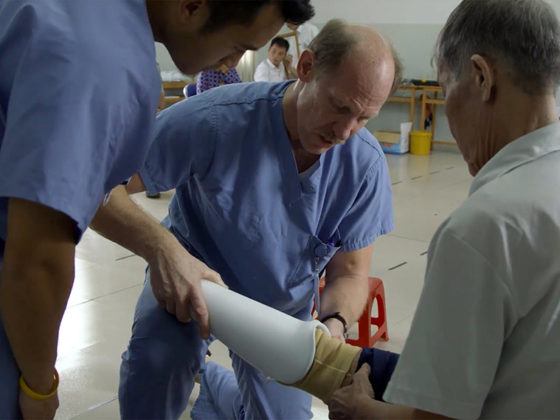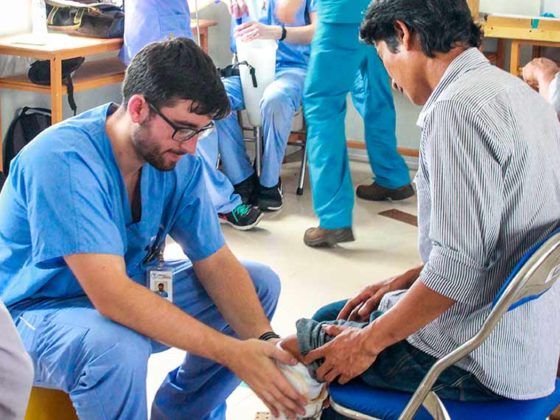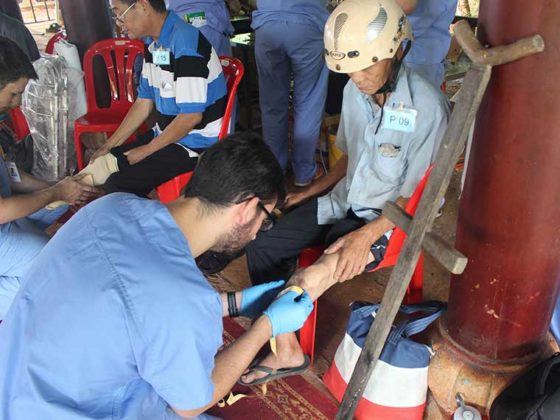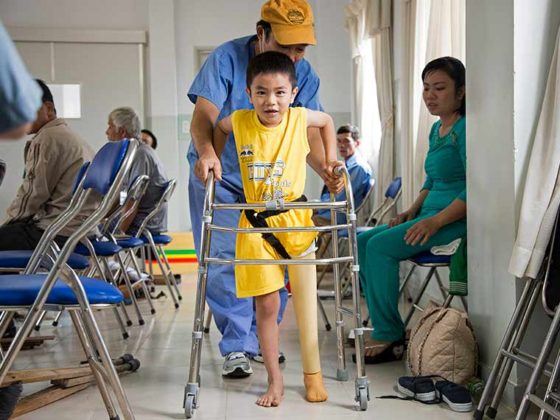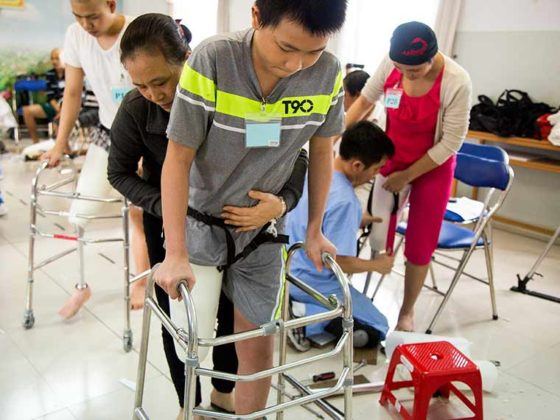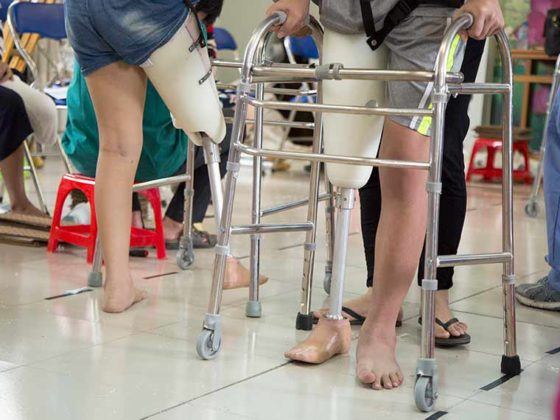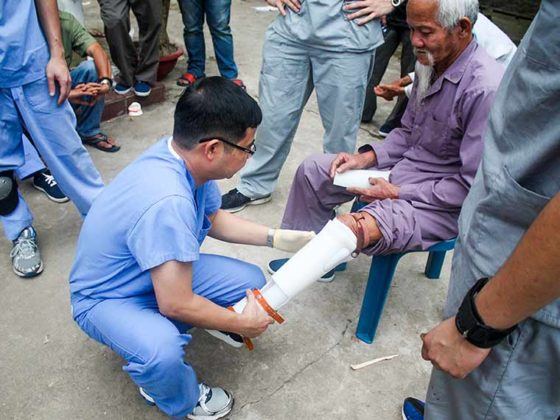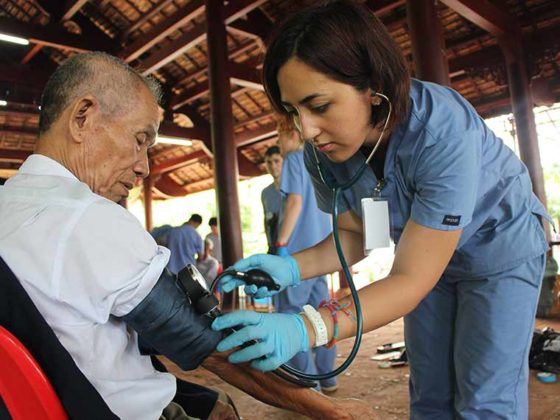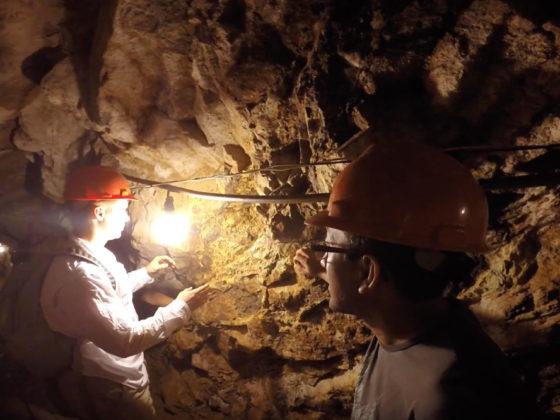To teach, to learn, to create,
to discover, to inspire,
to empower, to serve.
to discover, to inspire,
to empower, to serve.
In 2006, Mercer President William D. Underwood tasked University Minister and Dean of Chapel Dr. Craig McMahan with creating a program that would allow students and faculty to carry the University’s mission beyond the borders of Bibb County, the state of Georgia and even the United States.
 In June 2007, Mercer On Mission launched with 38 students and six faculty members traveling to Kenya, Guatemala and Brazil to hand out mosquito nets and work with at-risk children. More than a decade later, international service has become increasingly integral to the Mercer experience, and the University has taken on an increasing role as a difference-maker around the globe.
In June 2007, Mercer On Mission launched with 38 students and six faculty members traveling to Kenya, Guatemala and Brazil to hand out mosquito nets and work with at-risk children. More than a decade later, international service has become increasingly integral to the Mercer experience, and the University has taken on an increasing role as a difference-maker around the globe.
Mercer is changing the world through programs that are having an impact even when students and faculty are no longer in these countries. The University’s involvement is not just two to three weeks at a time during Mercer On Mission’s annual summer trips. The work continues year-round through regular communication and faculty visits, the hiring and training of local personnel, and additional steps to ensure that the solutions the University is offering to medical, environmental, educational and many other issues can be carried out on an ongoing basis.
Specifically for its prosthetics program, Mercer On Mission has been recognized by former President Bill Clinton and called the most effective nongovernmental organization in Vietnam by the country’s prime minister. Programs such as this, as well as efforts to curb mercury contamination in Ecuador and Peru and to improve education in the Dominican Republic and South Africa, are prime examples of Mercer’s enduring global footprint.
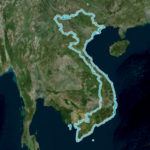
Vietnam
“Amputees that receive the prosthetic are doing all kinds of things that they haven’t been able to do before. It’s just an amazing transformation.”
~ Dr. Craig McMahan
Mercer On Mission’s prosthetics program in Vietnam began in 2009 when Dr. Ha Van Vo, Distinguished University Professor of Biomedical Engineering, realized a dream. As a young boy growing up in South Vietnam after the Vietnam War, he hoped to someday make a difference for his fellow citizens who lost limbs primarily from unexploded ordnance left after the war.
Today, it is estimated that there are more than 100,000 amputees in an economy that depends heavily on jobs, such as farmers and day laborers, that are difficult — if not impossible — to fulfill without the use of both legs.
On the first trip, a team of Mercer students and faculty visited the country with a prosthetic leg that Dr. Vo had begun to design and fit about 38 people in the town of Phung Hiep.
“What’s been at the heart of this program is this prosthetic leg that Dr. Vo designed,” said Dr. McMahan. “It’s an incredible piece of equipment. It is very light and durable, and it’s a very comfortable prosthesis. It weighs less than 2 pounds so the amputees find it to be very comfortable and functional.”
At first, Dr. Vo and his students were making the prosthetics in his lab on the Macon campus and carrying them in their suitcases to Vietnam. But the program soon outgrew this modest mode of production and transportation.
Thanks in large part to the generosity of Macon businessman Chris Sheridan, who through a family foundation contributes $250,000 per year to the program, prosthetics are now being produced in Vietnam. Mercer On Mission currently operates clinics in four locations around the country and trains local doctors and technicians to fit the prosthetic year-round in the absence of Dr. Vo and his team. Due to increased student interest, Mercer on Mission offered two separate trips to Vietnam during summer 2018. On June 26, the 10,000th Vietnamese amputee was fitted through the program.
“The lasting impact in one sense is that we are helping people become fully human, functional persons again”
Altogether, Mercer On Mission has fit almost 10 percent of the amputees in the country, allowing thousands of people to contribute economically, socially and in other ways they couldn’t in the past. The program is also stimulating the local economy through the creation of jobs for manufacturers and fitters.
“The lasting impact in one sense is that we are helping people become fully human, functional persons again,” said Dr. McMahan. “In another sense, we are creating opportunities for work by our orders for prosthetic legs.”
Yet another enduring impact is on the students who participate in the program, who, Dr. McMahan says, often aren’t the same after they’ve played a role in giving a fellow human the opportunity to walk.
“There’s something that happens deep in your soul that makes this an impactful experience,” he said. “So many of our students want to go back, and many of them reimagine what they might want to do with their lives.”
…
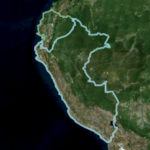
Ecuador/Peru
“Mercer opened the doors for me to not only develop but to create a market for one of Ecuador’s overlooked products, coffee.” ~ Shane Buerster
Globally, artisanal and small-scale gold mining is the leading source of anthropogenic mercury pollution. In these operations, mercury is used to purify gold from ore in a process called amalgamation. The mercury is burned off and turns to vapor, which travels freely through the atmosphere and does not break down in the environment. Mercury toxicity commonly affects the neurologic, gastrointestinal and renal organ systems.
Dr. Adam Kiefer, Distinguished University Professor of Chemistry, first took Mercer On Mission teams to Mozambique in 2010 and 2011 to assess mercury pollution in the environment and mercury poisoning of gold miners. The program shifted to Ecuador in 2012, where faculty and students assessed and mapped polluted areas. Last year, the country banned the burning of mercury.
The Mercer team developed a mercury capture system to trap exhaust fumes from burned amalgam. The new system successfully extracted 85 percent of Mercury vapor when the Ecuadorian government tested it last year.
After five years of work in Ecuador, Dr. Kiefer and his team relocated their work this summer to Peru, where burning mercury is still common practice.
As Mercer On Mission and Ecuadorian officials developed a working relationship over that five-year period, locals expressed concerns about other issues on the horizon for the gold-mining community in the country’s El Oro Province. In addition to the harmful effects caused by the chief industry in the area, there was a limited supply of gold that would eventually run out. Other industry would be needed to stimulate the economy in the near future.
In response, Mercer developed the “Centers of Strength” model, a multidisciplinary approach to serving international communities. In recent years, Mercer On Mission has brought in not only chemistry and engineering students to assess mercury pollution, but also education students to work with children, business students to consult with industry leaders and entrepreneurs, public health students to perform health assessments and Spanish students to serve as translators.
“We bring students in from so many different backgrounds, and they have their own stories to share,” said Dr. Kiefer. “By bringing everybody together, we really are able to work with communities in very unique ways.”
During the 2016 Ecuador trip, Mercer Class of 2018 graduate Shane Buerster, had his life and the lives of numerous Ecuadorians impacted by a chance encounter with a man named Arturo who had worked in the coffee industry for 50 years.
“I encountered many incredible Ecuadorians, and I realized just how hard they work. I realized that the average farmer’s son doesn’t complete primary school. I realized the average farmer’s daughter doesn’t complete the sixth grade,” said Buerster. “This bothered me. I have always had the opportunity to chase my dreams. I never had to worry about food being on the table. I know that I cannot create equal results for the farmers, but I can create an equality of opportunity.”
Buerster, an economics, Spanish and marketing triple-major from Pooler, purchased the first 4,000 pounds of Ecuadorian coffee for his new company, Z Beans, in August 2017. The business was founded with the mission to create sustainable solutions for impoverished Ecuadorian farmers through fair-trade importation methods.
Buerster held office space inside the Mercer Innovation Center during his senior year, and he has been awarded a fellowship that will allow him to stay there for the 2018-19 year. The fellowship program provides him with some funding for his business and housing.
He is currently supplying coffee to two coffee shops in the Southeast, nine retail locations and 10 businesses in Macon. One of his short-term goals is to supply coffer to the breakrooms of another 40 local businesses.
“This is my calling,” he said. “I plan to create a global platform for the farmers to sell their products.”
…
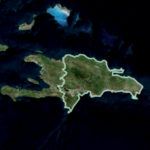
Dominican Republic
“The more I have worked with these amazing teachers and leaders, the more I realize that I am the major learner.” ~ Dr. Sherah Carr
Mercer’s McDonald Center for the Advancement of Global Education in the Dominican Republic is primarily the vision of one man: Tom McDonald.
McDonald, who attended Mercer before transferring to another institution, and his wife, Ramona, a Tift College graduate, wanted to give back to a country that had given much to them by helping Dominicans succeed as participants in the global economy.
The key to achieving this goal, McDonald believes, is education. He owned a medical supply business in the Dominican Republic for two decades. On an island nation that requires international commerce for a thriving economy, he found that education — or the lack thereof — was often holding back firms from expanding operations.
He sought out Mercer and its Tift College of Education to help establish the McDonald Center, which began working with K-12 schools four years ago. Mercer faculty participating in the Center’s efforts soon discovered that in order to create sustainable impact in the country, they also needed to work with the university professors who were training the local schoolteachers.
The Center is not only working with K-12 teachers and professors, but also in other sectors of society, such as a local medical school. McDonald aims to continue to expand the Center’s efforts, both within the Dominican Republic and other areas of the world.
“We immediately saw why Tom was so passionate about serving that community because we were all very taken by the children, the teachers and the opportunity to impact positively the educational experience in this region,” said Dr. Penny Elkins, senior vice president for enrollment management and Fred L. Miles Endowed Chair of Educational Leadership at Mercer.
Tift College faculty developed online teaching modules for local teachers. The McDonald Center has selected four K-12 schools — two private and two public — with the goal of having all teachers in each of these schools trained on the modules. Thus far, two of the schools have completed training. Local facilitators also have been identified as “super-users” of the modules who can teach them year-round.
Additionally, the McDonald Center will host its third university-level conference this August. In 2017, 250 teachers participated in sessions on various subjects and heard a keynote address from a former Minister of Education in the country. The number of attendees is expected to double for this year’s event. A key focus of this work has been to inspire a shift from lecturing to outside study and in-class discussion, a model that can be carried on to the K-12 learning environment.
“They have developed close relationships with the Dominican people. They have been innovative in their work, and they are always building on what we’ve accomplished and thinking of ways we can improve. I think the work has been very meaningful for them.”
“The professors at Mercer have done an outstanding job,” said McDonald. “They have developed close relationships with the Dominican people. They have been innovative in their work, and they are always building on what we’ve accomplished and thinking of ways we can improve. I think the work has been very meaningful for them.”
This summer, Tift College faculty, led by Dr. Justin Ballenger, and STEM teachers from Gwinnett and DeKalb counties, went to the Dominican Republic to follow up on training and also to set up a 2-acre plot at one of the schools that will be used as an aquaponics garden. Local high-schoolers will be charged with maintaining the fish and vegetables in the garden while also learning science and math concepts.
“The bottom line is that we all share the mutual focus of improving the quality of instruction for students,” said Dr. Sherah Carr, associate professor in the Tift College of Education. “I have shared many lessons learned from this project with my students. I want them to have a sense of the benefits of international viewpoints on teaching and learning and how we can approach differences from an asset versus a deficit perspective. My goal now is to add more Mercer students as active participants in this incredible project.”
Additionally, Mercer On Mission hopes to become increasingly involved with the McDonald Center’s work. In an unrelated project, the men’s basketball team traveled to the country last June to build a water system in an area where locals did not have access to clean drinking water. Organizers are looking into how projects such as these could be linked to create a new “Center of Strength” in the Dominican Republic.
…

South Africa
“Our work in South Africa not only embodies Mercer’s mission to use University expertise and resources to empower citizens in the developing world, but also to instill a commitment to social justice and equity among our students,” ~ Dr. Mary Alice Morgan
Over the past 10 years, Dr. Mary Alice Morgan, senior vice provost for service-learning, and Dr. Eimad Houry, professor and chair of international and global studies, have accompanied students on six Mercer On Mission trips to South Africa, a country still navigating its way out of decades of institutionalized racism prior to the end of apartheid in 1994.
The running theme throughout these trips has been service to education. Teams have worked on projects, such as creating an instructional video on social health determinants, providing research and support to a local housing project and organizing a interscholastic debate tournament, with a goal of empowering and inspiring impoverished communities.
“For me personally, having grown up in the American South when it was still segregated, anything that could be done to help manage the recovery from that sort of social engineering was something I wanted to be a participant in,” said Dr. Morgan.
South African activist Anwar Parker has served as a liaison to the Mercer On Mission team, connecting it with local organizations that need help. He has also begun bringing in Mercer students as interns to help with community outreach efforts year-round.
“Working with us several times, Anwar recognized that Mercer is committed to making a lasting impact with the organizations and the individuals we’re working with,” said Dr. Morgan.
One project, in particular, that stands out is the development of a drama club at an under-resourced and marginalized school in a township that had recently been created from a squatter camp. The Mercer On Mission team provided local students with copies of plays written during apartheid, but the students weren’t content to act out these plays; they wanted help to write and perform their own.
Students reflected on struggles, not only with racism, but with other issues, such as hunger, which they encountered on a daily basis at a school of 600 with only enough government funding to feed 400 students each day.
They selected and performed a play, called “The Hot Seat: Untold Stories of a South Africa Township,” for the first time in front of their school and families, and in fall 2017, after the Mercer On Mission team had left, they entered a local competition and won first place. They went on to regional and provincial competitions — and won first place at each of those, as well, against schools with many more resources. The play served as a “stepping stone” for many of the students to pursue college and careers.
“A lot of our students come back with a fresh perspective on issues they thought they understood based on things they studied in the classroom but they hadn’t really experienced firsthand for themselves,” said Dr. Houry. “One of those issues is inequality and the degree to which it can stifle motivation and aspirations in people to achieve and succeed in life.”
One of these students, Mercer Class of 2018 graduate Joseph Payne, sought to have a lasting impact when he returned to the South Africa as an intern with DOCKDA Rural Development Agency. He organized and managed a crowdfunding campaign to raise money for bicycles to be distributed to schoolchildren in the remote Northern Cape Province.
The campaign included Payne — a philosophy and politics, philosophy and economics double-major from Dublin — hiking 15 kilometers (9.3 miles) over three mountains near Cape Town to raise awareness about the lengths that local children often have to take to travel to and from school each day. He successfully raised funds to purchase five bicycles that were distributed last fall.
“I had an incredible experience living in Cape Town, a city with a very complex and interesting history and culture. I was also pleased to get to know my South African coworkers very well and have a rewarding work experience.”
“I have long been interested in poverty relief and international travel and saw the South Africa internship program as a great opportunity to combine the two,” said Payne. “I had an incredible experience living in Cape Town, a city with a very complex and interesting history and culture. I was also pleased to get to know my South African coworkers very well and have a rewarding work experience.”
Thus far, 30 Mercer students have participated in six- to eight-week internships in South Africa. Additionally, the Mercer Service Scholars — a prestigious program for students who have demonstrated a commitment to service and leadership in addition to outstanding academic performance — are involved in a regular Mercer On Mission trip to South Africa, as the University continues to expand its footprint in that community.
“Our work in South Africa not only embodies Mercer’s mission to use University expertise and resources to empower citizens in the developing world, but also to instill a commitment to social justice and equity among our students,” said Dr. Morgan.
“We have many students come back and pursue opportunities with organizations like the Peace Corps,” added Dr. Houry.


